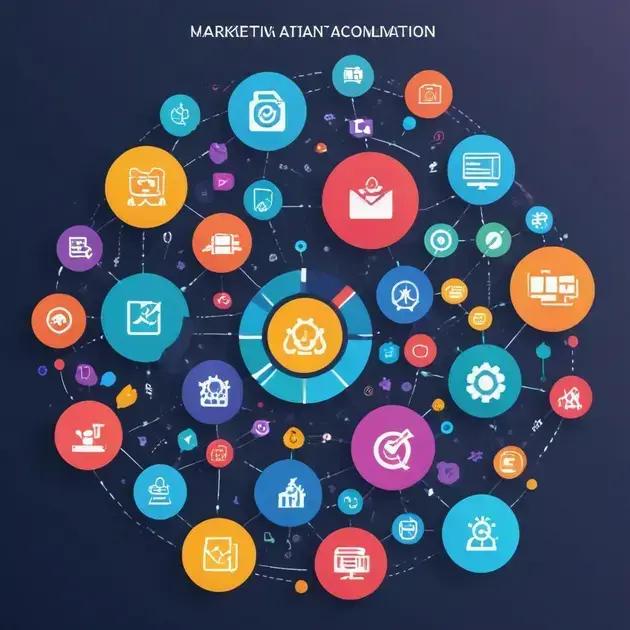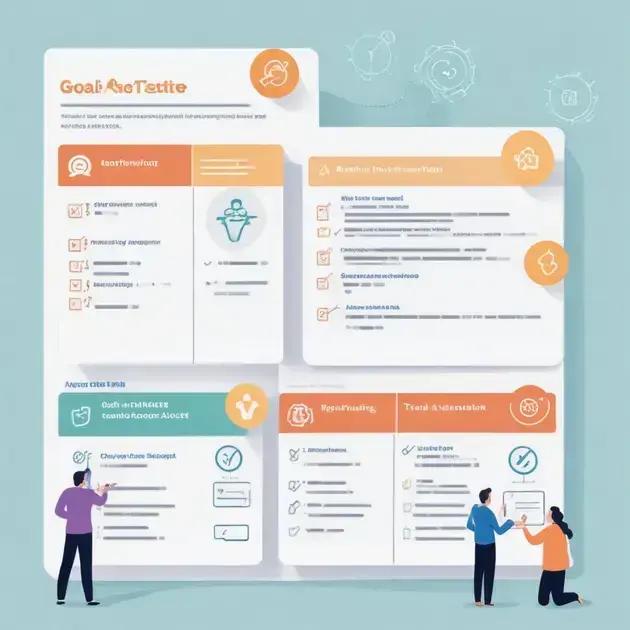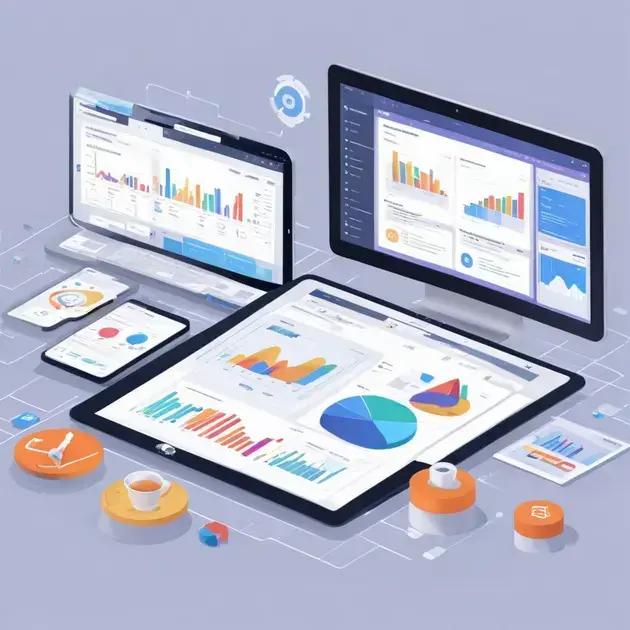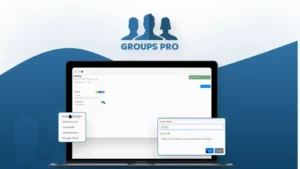Marketing automation software streamlines marketing tasks, enhances customer engagement, and improves lead management. By automating processes such as email marketing and analytics, businesses can save time, personalize communications, and drive higher sales conversions.
Marketing automation software platforms are essential tools for businesses looking to improve efficiency and effectiveness in their marketing strategies. These platforms automate repetitive tasks, allowing marketers to focus more on creative strategies and connecting with their audience. In this article, we’ll dive deep into what these platforms are, the benefits they offer, and how to choose the best one for your business.
What are Marketing Automation Software Platforms?
Marketing automation software platforms are tools designed to streamline, automate, and measure marketing tasks and workflows. These platforms help businesses manage their marketing processes more effectively by reducing the time spent on repetitive tasks.
Definition and Purpose
At their core, marketing automation platforms enable businesses to automate marketing campaigns across various channels such as email, social media, and websites. They perform functions like sending out marketing emails, managing social media posts, and tracking engagement.
How They Work
These platforms work by utilizing customer data to personalize interactions. By creating targeted campaigns based on user behavior, businesses can engage their audience more effectively. Features such as lead scoring and customer segmentation are commonly found in these tools, allowing for tailored approaches to different user groups.
Common Features
Most marketing automation platforms come equipped with a variety of features, including:
- Email Marketing: Automate sending personalized emails to customers based on their behavior.
- Lead Management: Track and manage leads from acquisition to conversion.
- Analytics and Reporting: Measure the performance of marketing campaigns with detailed reports.
- Social Media Management: Schedule and analyze social media posts all in one place.
These features make marketing automation platforms valuable for businesses looking to scale their marketing efforts with minimal manual input.
Benefits of Using Marketing Automation
By using marketing automation software, companies can save time, increase efficiency, and enhance their ability to reach target audiences. This results in improved customer engagement and higher conversion rates, making it an essential tool for today’s digital marketing landscape.
Benefits of Using Marketing Automation Software

Using marketing automation software provides numerous benefits that can help businesses streamline their marketing efforts and improve overall efficiency. These tools are essential for managing multiple marketing channels simultaneously while saving time and resources.
1. Increased Efficiency
Marketing automation software eliminates repetitive tasks, such as sending emails or posting on social media. This allows marketers to focus on developing creative strategies and engaging with their audience instead of manual processes.
2. Better Targeting and Personalization
By utilizing customer data, marketing automation software enables businesses to create highly targeted campaigns. Personalized messages based on user behavior and preferences result in higher engagement rates and improved customer satisfaction.
3. Enhanced Lead Management
These platforms help manage leads more effectively by tracking their interactions and behaviors. This allows businesses to nurture leads at different stages of the sales funnel, improving the chances of conversion.
4. Comprehensive Analytics and Reporting
Marketing automation software provides detailed analytics on campaign performance. Businesses can track engagement metrics, conversions, and ROI, helping them to make data-driven decisions and optimize future marketing efforts.
5. Improved Collaboration and Coordination
These tools foster better communication between marketing and sales teams. By sharing data and insights, both teams can work together more effectively, aligning their strategies to achieve common goals.
6. Cost Savings
By automating various marketing tasks and improving efficiency, businesses can significantly reduce operational costs. Less manual work also means fewer errors, resulting in better resource allocation and higher productivity.
Key Features to Look for in Marketing Automation Platforms
When choosing marketing automation platforms, it is essential to consider the key features that will enhance your marketing efforts. Here are some of the most important features to look for:
1. Email Marketing Automation
This feature allows users to create, send, and track email campaigns automatically. Look for platforms that enable personalized emails based on user behavior, which can increase engagement and conversions.
2. Lead Scoring
Lead scoring helps prioritize leads based on their interactions with your brand. This feature enables marketing and sales teams to focus on high-potential leads, improving the chances of conversion.
3. Customer Segmentation
Segmentation allows you to divide your audience into smaller groups based on different criteria, such as demographics or behavior. This ensures that marketing campaigns are targeted and relevant, which leads to higher engagement rates.
4. Multi-Channel Campaign Management
Look for platforms that support multiple channels such as social media, email, and SMS. This ensures a cohesive marketing strategy across all platforms, enhancing brand visibility.
5. Analytics and Reporting
Comprehensive analytics and reporting features provide insights into campaign performance. These tools help you track metrics such as open rates, click-through rates, and conversions, allowing for data-driven decisions.
6. Landing Page Creation
Many platforms offer tools to create and optimize landing pages. This feature is vital for driving conversions from campaigns, making it easier to capture leads and direct traffic.
7. Integration Capabilities
Choose a platform that can easily integrate with your existing tools and software. Effective integration ensures a seamless workflow and enhances data management across different systems.
8. User-Friendly Interface
A simple and intuitive interface is crucial for user adoption. An easy-to-navigate platform allows marketing teams to get up to speed quickly and start running campaigns efficiently.
How to Choose the Right Marketing Automation Software

Choosing the right marketing automation software can be a significant decision for your business. With many options available, it’s crucial to focus on essential aspects that will meet your marketing needs. Here’s how to make the right choice.
1. Define Your Goals
Begin by identifying what you want to achieve with marketing automation. Whether it’s increasing email engagement, improving lead generation, or streamlining social media management, having clear goals will guide your selection process.
2. Assess Your Budget
Determine your budget for marketing automation software. Prices can vary significantly based on features, so understanding how much you are willing to spend will help narrow down your options.
3. Research Features
Look for software that offers the features necessary to meet your marketing goals. Key functionalities to consider include:
- Email marketing capabilities
- Lead scoring and management
- Analytics and reporting tools
- Integration with existing software
- Ease of use and user interface
4. Read Reviews and Ratings
Check user reviews and ratings to understand the experiences of other businesses. Look for feedback on customer support, functionality, and ease of use to find the right fit for your team.
5. Take Advantage of Free Trials
Many platforms offer free trials. Utilize these trials to test the software and see how it fits your needs. Ensure that the platform is user-friendly and that you can easily access the features you require.
6. Consider Customer Support
Having reliable customer support is essential, especially when implementing new software. Check the support options available, such as live chat, phone, or email, and prioritize platforms that offer comprehensive assistance.
7. Look for Scalability
Choose marketing automation software that can grow with your business. Ensure that it can handle increasing volumes of data and users as your needs evolve over time.
Success Stories with Marketing Automation Software
Many businesses have successfully implemented marketing automation software to improve their marketing efficiency and increase revenue. Here are some notable success stories that highlight the benefits these tools offer.
1. E-commerce Store Boosts Sales
An online retail shop used marketing automation software to segment their customer base and create personalized email campaigns. By targeting customers based on their past purchases, they saw a 35% increase in sales during promotional campaigns, leading to higher customer retention and loyalty.
2. SaaS Company Improves Lead Conversion
A software-as-a-service (SaaS) provider used marketing automation to nurture leads through a series of automated email drip campaigns. By providing valuable content and timely follow-ups, the company increased its lead conversion rate by over 50% in just a few months.
3. Travel Agency Enhances Customer Experience
A travel agency implemented marketing automation to send customized travel offers and reminders to clients. This personalized approach resulted in a 40% increase in bookings during peak seasons, as past customers were reminded of their interest in certain destinations.
4. Nonprofit Organization Increases Donations
A nonprofit used marketing automation to manage its fundraising campaigns effectively. By segmenting their donor list and sending tailored appeals based on previous donations, they achieved a 60% increase in donations compared to the prior year.
5. Educational Institution Drives Enrollment
An educational institution utilized marketing automation to engage with prospective students. Through personalized emails and targeted content based on student interests, they increased enrollment by 30% for their upcoming academic year.
6. Manufacturer Streamlines Product Launches
A manufacturing company adopted marketing automation to manage product launches. By coordinating their email marketing, social media promotions, and lead tracking through one platform, they successfully launched several products on schedule and saw a 25% rise in initial sales.
Harnessing the Power of Marketing Automation
Marketing automation software is a valuable tool for businesses seeking to improve their marketing efforts and enhance customer relationships. By automating tasks such as email campaigns and lead management, companies can save time and focus on strategy.
Success stories from various industries show how marketing automation can lead to increased sales, better customer engagement, and overall growth. As businesses continue to evolve, adopting these solutions can help them stay competitive and drive success.
Don’t miss out on the benefits of marketing automation—it’s time to transform your marketing strategy and unlock new opportunities!
FAQ – Frequently Asked Questions About Marketing Automation
What is marketing automation software?
Marketing automation software automates marketing tasks like email campaigns, social media posting, and analytics, helping businesses improve efficiency and consistency.
How can marketing automation benefit my business?
It can save time, enhance customer engagement, improve lead management, and provide valuable insights through analytics, leading to increased sales.
What features should I look for in marketing automation software?
Key features to consider include email marketing automation, lead scoring, customer segmentation, analytics, and the ability to integrate with other tools.
Is marketing automation only for large businesses?
No, marketing automation is accessible for businesses of all sizes. Many solutions are designed specifically for small to medium-sized businesses.
Can marketing automation help with personalized marketing?
Yes, it enables businesses to create personalized campaigns based on customer data, improving engagement and response rates.
How do I choose the right marketing automation platform?
Define your goals, assess your budget, research features that fit your needs, read reviews, and take advantage of free trials to test options.




